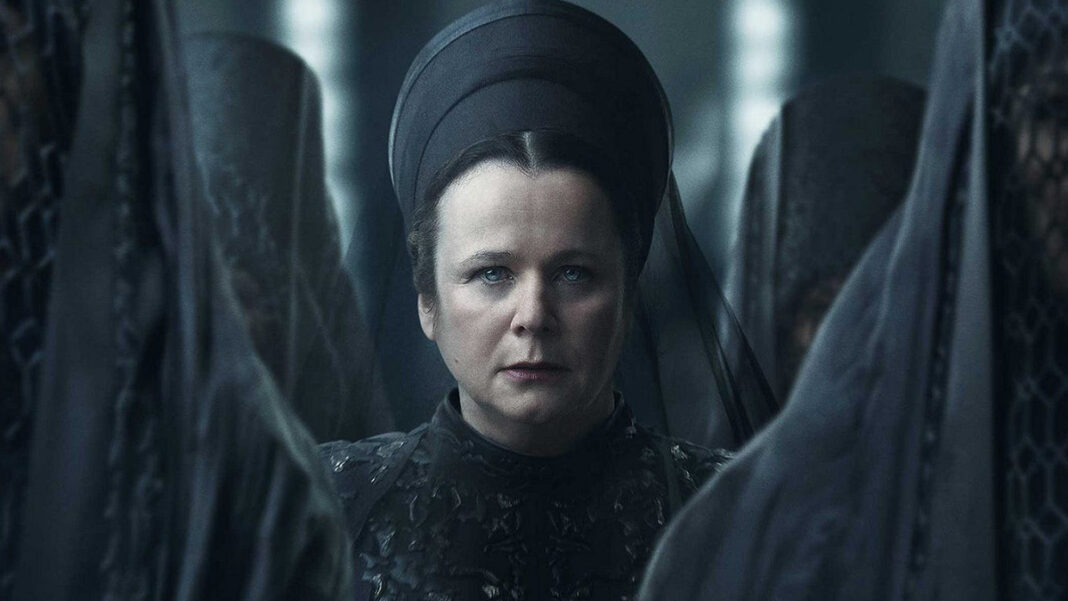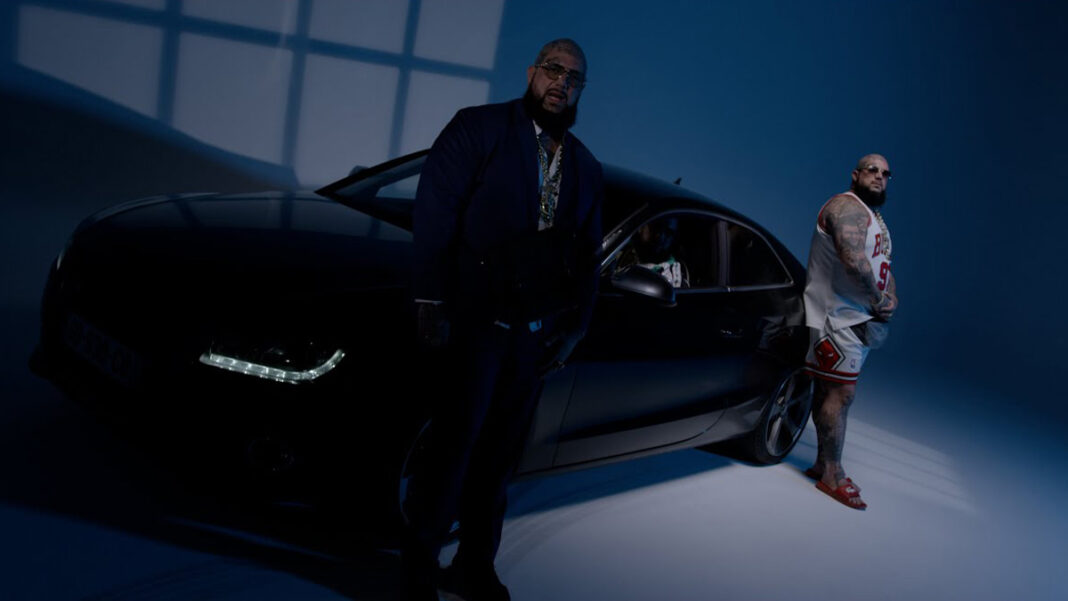In the beginning, there was a film by Frank Herbert that established the Dune saga. Later, at the peak of its fame, David Lynch etched Dune into history with a cult classic feature film. Whether the “great” American cinema has lost its imagination is debatable, but Denis Villeneuve has taken up the mantle of Dune with a powerful and well-crafted new trilogy. The final installment of this trilogy is currently in production. When the industry finds a lucrative idea, it exploits it to the fullest. Thus, HBO decided to produce a prequel to Dune, set tens of thousands of years before the rise of Denis Villeneuve’s chosen one.
After the Machine War, Valya and Tula Harkonnen founded the order of the Bene Gesserit, a kind of feminine Freemasonry designed to counter the plans of evil forces. True to its tradition since the foundational series like Oz, The Wire, and the legendary Game of Thrones, HBO blurs the lines between good and evil. Dune: Prophecy is a genuine race for power in the Dune universe, where the “spice” strongly resembles our “oil”. Supported by a cast of actors as talented as they are professional, the series leaves nothing to chance.
Dune: Prophecy, the “modern” series we need!
To create a quality series, the right ingredients are essential. First, the universe of Dune. The films by Denis Villeneuve have created a visually and narratively harmonious environment for the series. An undeniable global success, with over $407.67 million at the box office for the first installment, everyone knows Dune. The series even references Paul Atréides, the hero of the saga, in the very first episode. After Apple’s failed attempt to adapt the myth of Foundation by Isaac Asimov into a successful series, HBO chose to focus on a spin-off rather than digging deeper into science fiction to find a successor to Game of Thrones. While House of the Dragon performs well, it doesn’t match the popularity of its predecessor.
Another strength of Dune: Prophecy is its depiction of the power struggle between the Harkonnen and the Atréides, a rivalry that will carry over into Denis Villeneuve’s films. The Bene Gesserit, advisors to the “Great Houses”, work in the shadows to achieve an ultimate goal revealed in the cinematic saga. Power plays, betrayals, and political intrigue are integral to the series, echoing the themes of Game of Thrones. However, the “feminist Freemasonry” angle of the Bene Gesserit adds a unique touch, and the plots in Dune: Prophecy are less “hardcore” than those of Game of Thrones. HBO, aware of Dune’s appeal to a younger audience, opted for a more restrained approach in terms of graphic violence. The first episode drew 1.2 million viewers in the U.S. on its initial broadcast, with a 75% increase the following day, bringing the total to 2.1 million viewers. So far, it’s a success.
Dune: Prophecy, a polished but “recycled” masterpiece?
The main characters of Dune: Prophecy bring the story to life with their complexity and intersecting ambitions, portrayed by a remarkable cast. Valya Harkonnen, played by Emily Watson (“Breaking the Waves”, “Chernobyl”), is the ambitious and calculating leader of the Sisterhood, sharing a tense relationship with her sister Tula, portrayed by Olivia Williams (“The Sixth Sense”, “Counterpart”). Emperor Javicco Corrino, played by Mark Strong (“Kingsman”, “Tinker Tailor Soldier Spy”), struggles to maintain his reign amidst political chaos, supported by his strategic and determined wife, Empress Natalya Corrino, played by Jodhi May (“The Last of the Mohicans”, “The Witcher”). Their daughter, Princess Ynez Corrino, played by Sarah-Sofie Boussnina (“The Colony”, “The Bridge”), aspires to be the first sister to ascend the throne. Finally, Desmond Hart, a mysterious soldier played by Travis Fimmel (“Vikings”, “Warcraft”), adds an unpredictable element to the narrative. Together, these characters embody the tensions and power struggles that define the universe of Dune.
Most of the actors come from acclaimed productions, and their professionalism is evident in every scene. No detail is left to chance. However, while the series is technically flawless, it sometimes lacks originality. Dune: Prophecy comes across as a sanitized Game of Thrones set in the Dune universe. This trend is not unique to HBO; American cinema and series have become mired in remakes and spin-offs that, while increasingly high-quality, are also increasingly repetitive, creating “families” of series like Breaking Bad, Narcos, and Game of Thrones. Meanwhile, international series like The Heist, Helicopter Heist (Sweden), or Squid Game demonstrate that originality and global success can go hand in hand.
In a sketch by Les Inconnus parodying the “Césars” in the 1990s, a filmmaker received an award for “Bioman versus Batman”. Today, this caricature of modern cinema seems to be coming true.


